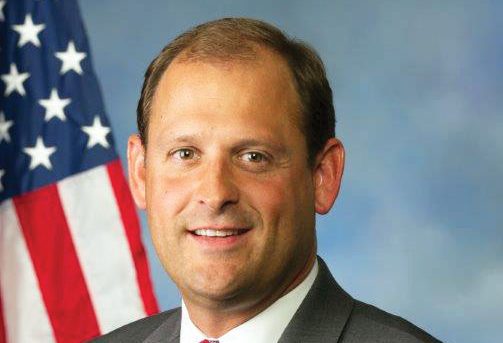Barr: Congress responded to virus robustly
Published 6:56 pm Wednesday, April 8, 2020

- Andy Barr
|
Getting your Trinity Audio player ready...
|
As a fiscal conservative, Congressman Andy Barr, said this week that the $2.2 trillion cost of legislation to fight the coronavirus pandemic and help those suffering economic pain as a result gives him “heartburn,” but he supports it because it’s what’s right.
The 6th District Republican, who represents the Bluegrass region, spoke on the House floor March 27 in support of the Coronavirus Aid, Relief and Economic Security Act, saying it was “an opportunity to go to war against this virus” and provide economic relief to families, small businesses and workers.
In an interview Tuesday with Bluegrass Newsmedia, Barr said COVID-19 has everyone’s full attention now. It’s the only issue he’s hearing about from his constituents.
Barr said the world is fortunate to have the United States leading the fight against the virus that originated in China late last year and has spread around the world, causing widespread illness, death and economic disruption.
From the scientists who are working hard to create a vaccine to the financial services sector, which has responded to provide liquidity to cash-strapped businesses to small businesses that are trying to keep their employees paid as long as they can, the country has responded robustly and aggressively to the threat, he said.
“It has been quite an impressive display of the American spirit,” he said.
“We’re going to overcome this, and we’re going to be more resilient and stronger” afterward, Barr said.
The CARES Act originated in the Senate, where it passed March 25 by a bipartisan vote of 96-0. In the House, it had to be passed by a voice vote to quash an attempt by Rep. Thomas Massie, R-Ky., to require members to show up in person at the Capitol for a roll call. President Donald Trump signed it March 27.
The comprehensive bill does several things. It provides financial assistance to persons and households in the form of direct payments of up to $1,200 per person and $500 per child. It provides help to distressed businesses and workers in several ways, including extension of unemployment benefits and a payroll protection program to help businesses keep workers paid so they don’t have to file for benefits, and provides loans to businesses large and small.
Finally, it provides for “a heroic rescue of our health care system,” Barr said, including funding for hospitals, FEMA and the Veterans Administration, and money for research into new therapies and vaccines, and production of ventilators and personal protective equipment.
One aspect of the personal financial aid part that many people overlook, Barr said, is that it allows them to withdraw and recontribute to their IRAs or 401k accounts temporarily without tax penalty if they need to use part of their retirement account for emergency money.
After the housing market crash caused an economic recession in 2008, Barr opposed part of the stimulus that included bailouts of toxic assets. But this stimulus is different in ways other than being more than twice as large.
“What you have here is an intentional, deliberate shutdown of the U.S. economy by the government in order to respond to a public health emergency,” Barr said.
“It is entirely appropriate for the government to compensate businesses, families and individuals who are losing their jobs, losing their livelihoods, to provide them with the liquidity and the short-term cash flows to get through this as households and as businesses. Because it is in fact the government that has caused them to stop their economic activity. That’s an important distinction,” he said.
Barr was impressed that, for the most part, Republicans and Democrats came together to pass the legislation.
“One silver lining is that, in a polarized time in politics, this is where the country has come together” to respond aggressively to a national threat, he said.
Barr said that his staff was able to help procure three shipments of face masks from a national stockpile for Kentucky and has worked with epidemiologists and hospitals to push for changes to allow use of telemedicine to conserve personal protective equipment or PPE.
“CMS just pushed out a new set of rules this weekend, so I think we’ve made a difference from our office,” he said, referencing the Centers for Medicare and Medicaid Services.
Barr said his office has also been on the phone daily with the Governor’s Office to help the state get answers and advocate for the state government with federal agencies, including the Federal Emergency Management Agency (FEMA) and Health and Human Services (HHS), and he is pushing for production of ventilators in Kentucky.
“We are really pushing hard to get Kentucky lenders enrolled into the system so that our small businesses can get the liquidity” they need to operate, he said, referring to efforts to get banks involved with the paycheck protection program.
Tuesday, Barr released a statement calling for expansion of the paycheck protection program.
This afternoon and evening, from 5:10 to 6:10 p.m., Barr will host a fourth online town hall, which will include Dr. Daniel Rodrigue, an epidemiologist, on the COVID-19 pandemic.






